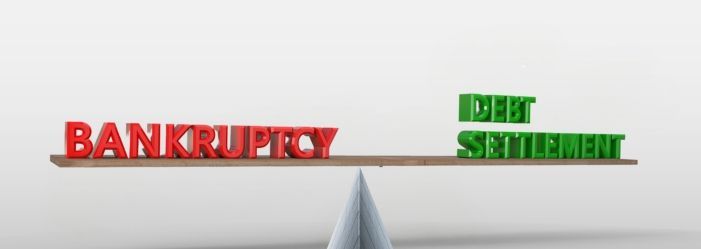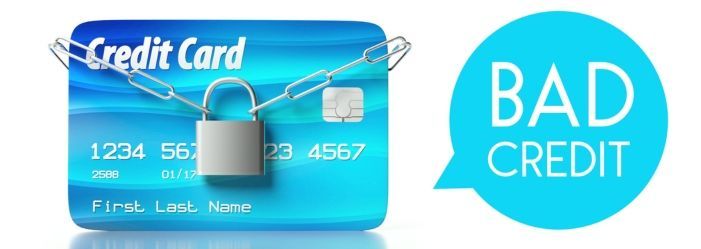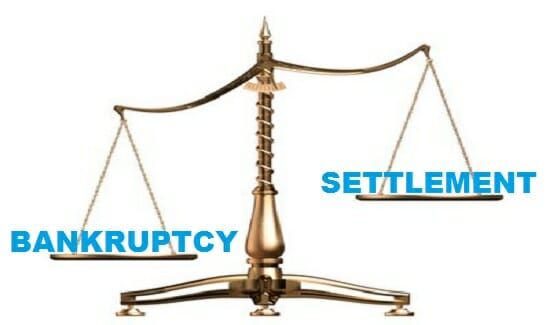Last Updated: April 1, 2024
Choosing Wisely: A Guide to Financial Recovery Paths

Disclaimer: We are not qualified bankruptcy professionals and are not giving advice. Always speak with a qualified professional before making any legal or financial decisions.
When financial burdens become insurmountable, and traditional debt relief methods no longer offer a way out, it’s time to consider more decisive measures.
For many, the crossroads of debt settlement and bankruptcy represent a final stand against financial ruin. This guide is designed to illuminate these paths, providing you with the knowledge to choose wisely based on your unique circumstances.
Whether it's negotiating a fraction of your debts or seeking the court's intervention for a fresh start, understanding your options is the first step towards reclaiming financial stability.
Ready to move forward? Skip the article and click here for a free consultation with our debt specialist.
Cost Comparison
The costs associated with debt settlement and bankruptcy can vary significantly:
- Debt settlement companies typically charge 15-25% of the total enrolled debt amount in fees. This is paid over the course of the program, usually from funds set aside in a dedicated account.
- Filing for Chapter 7 bankruptcy costs around $1,100 on average in attorney's fees, plus a $335 court filing fee. Total costs are generally $1,500 or less.
- Chapter 13 bankruptcy costs between $2,500-$6,000 on average for attorney's fees, plus a $310 court filing fee. Payment plans can spread out the attorney costs over time.
- Overall, debt settlement usually costs less than filing for bankruptcy upfront. The debt settlement fees are spread out over 2-4 years rather than paid as a lump sum. However, bankruptcy may still make more financial sense if you need immediate protection from creditors or have few assets to liquidate.
Bankruptcy Chapter 7
Filing a Chapter 7 bankruptcy is basically like wiping the slate clean, discharging all your debts and starting over. However, it's crucial to understand what debts get discharged in this process. It typically only lasts a few months and provides for the most immediate form of debt relief than any other option.
The bankruptcy can stay on your credit report for up to 10 years, but you should be able to rebuild your credit to the point where you can borrow money for consumer items within a few years. Bankruptcy reform laws passed in 2005 have made it harder for many consumers to qualify for a Ch. 7 however.
Now, depending on your income and your assets, if you file for bankruptcy you may not be eligible to file for a Chapter 7 and would be required to file a Chapter 13 instead. Since all states are different you will need to speak with a bankruptcy attorney about which chapter would be appropriate for you.
Bankruptcy Chapter 13
A Chapter 13 bankruptcy is a much different animal than a Chapter 7. With a Chapter 13 you will be on a repayment plan for the next 3 to 5 years and might even be required to pay your entire debt in full. The goal of Chapter 13 is to protect you from creditors but put a repayment plan in place that will pay back as much of the debt as possible.
Chapter 13 plans typically have a high rate of default among consumers because the monthly payments that they are required to pay can be very high. Many consumers compare Chapter 13 bankruptcy plans to getting an allowance as a kid. Over the 3 to 5 year plan, you are told what you can afford, what you can’t, and how much of your money you have to live on. If you get a raise at work, that must be reported, and the bankruptcy court will decide if you get to keep any of that extra money or if it all must go to your creditors.
Except in rare circumstances, a Chapter 13 bankruptcy is one of the least desirable debt relief solutions.
Credit Score Impact

Both debt settlement and bankruptcy will negatively impact your credit, but in different ways:
- Debt settlement programs typically cause a credit score to drop 100 points or more because accounts must go delinquent to prompt creditors to negotiate. The debt settlement will then remain on your credit report for 7 years from the date of your first missed payment.
- Chapter 7 bankruptcy can actually improve credit scores that are already below 600, but will significantly hurt scores above 700. This is because all unsecured debts are eliminated, allowing for a quicker rebound. However, the bankruptcy stays on your credit report for 10 full years.
- Chapter 13 bankruptcy is typically less damaging to your credit score long-term compared to Chapter 7. It still causes a major drop initially. A Chapter 13 bankruptcy stays on your credit report for 7 years.
If your credit score is already low going into the process, below 600, bankruptcy may actually help improve it faster than debt settlement programs. But debt settlement usually causes less long-term damage if you can avoid having to file for bankruptcy down the road.
Debt Settlement
If you can’t qualify for a Ch.7 bankruptcy or would prefer to pay back at least some of what you owe based on your ability, debt settlement approach is a great strategy to consider. Debt settlement allows you the ability to negotiate with your creditors for a lower principle pay off amount. Learn more about the process in our guide to debt settlement.
Since you must be behind on your debts before your creditors will agree to accept a reduced payoff, a settlement does have a negative effect on your credit, although, in many cases, the credit report will not be damaged as long as with a bankruptcy.
Debt settlement strategies work best for consumers who want to avoid bankruptcy or at least want to try and pay back some of their debt on flexible terms without just walking away from it. Having access to a reserve lump sum amount of money like a 401k or some other savings would be helpful, but isn’t necessary to successfully settle your debts.
Debts Eliminated
- Debt settlement programs can effectively eliminate unsecured debts like credit cards, medical bills, personal loans, and private student loans through negotiation with creditors. Debts secured by collateral like mortgages and auto loans usually cannot be settled.
- Chapter 7 bankruptcy eliminates most unsecured debts like credit cards and medical bills, providing a fresh start. However, certain debts like federal student loans, child support, and alimony cannot be discharged.
- Chapter 13 bankruptcy also does not allow the discharging of federal student loans or domestic support obligations. Non-exempt assets may need to be liquidated to repay creditors as well.
Overall, bankruptcy provides more certainty and protection when it comes to eliminating debts, except for student loans and domestic support which cannot be discharged in either process.
FAQs
Conclusion
Determining whether debt settlement or bankruptcy is the better option requires looking at your specific financial situation. Important factors to compare include the cost, credit score impact, types of debt that could be eliminated, and how quickly you need debt relief.
While debt settlement provides a flexible way to resolve unsecured debts over time, bankruptcy may be a better solution if you need immediate protection, have few assets, or cannot afford the debt settlement program fees. Discover the best time to file for bankruptcy in our guide. Speaking with professionals for both options is the best way to make an informed decision.
As mentioned above, every consumer situation is unique and the best way to compare a Bankruptcy vs Debt Settlement is to contact a professional to review your situation and help you determine how either strategy may or may not work well for you.
To learn more about debt settlement, contact the professionals at Pacific Debt for a free Debt Reduction Estimate. Once we teach you about the settlement process, you can speak with a bankruptcy attorney and know for certain which option would be the best for you.
If you are struggling with overwhelming debt and want to explore your debt relief options, Pacific Debt Relief offers a free consultation to assess your financial situation. Our debt specialists can provide objective guidance relevant information and support to help find the right debt relief solution.
Disclaimer: We are not qualified bankruptcy professionals and are not giving advice. Always speak with a qualified professional before making any legal or financial decisions.
Reduce Your Credit Card Debt By Up to Half

BBB Reviews | 4.9/5.0 Rating









 Do Not Sell My Personal Information
Do Not Sell My Personal Information